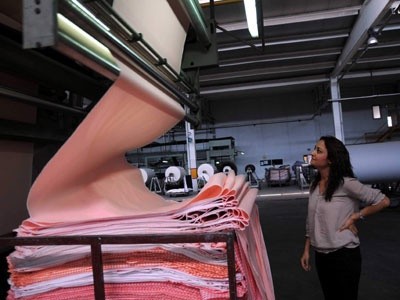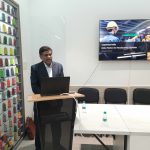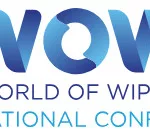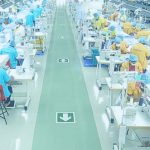The future of cotton was the topic of discussion at the National Cotton Summit held in Sanliurfa, the province which accounts for 40 percent of Turkey’s cotton production. Our Association was there as one of the sponsors of the summit, where it was stated that the improvement seen in cotton production in recent years will be even more pronounced when GAP (Southeastern Anatolia Project) fully becomes operative. According to estimates, irrigable land areas will double with the completion of the GAP Action Plan. Consequently, the cotton production in the region will also double. The summit was held on March 19-20 and focused on discussions on the volume of production and quality of cotton and the problems experienced in production.Speaking at the opening, Sanliurfa Governor Celalettin Güvenç said, “If you’re going to be a governor in Urfa, you have to love cotton. This region will grow much bigger when GAP fully becomes operative and everyone will be coming here to invest.”
 Following the opening remarks, in the first session of the summit, Mehmet Kaya, President of the Sanliurfa Trade Exchange (STB) made a presentation on
Following the opening remarks, in the first session of the summit, Mehmet Kaya, President of the Sanliurfa Trade Exchange (STB) made a presentation on  “The problems of cotton in the GAP region, specifically in Sanliurfa.” Kaya said he believed that cotton production in Turkey would increase with the realization of the GAP Action Plan. He continued, “The area to be irrigated within the framework of the GAP Action Plan occupies an area of 1,061,571 hectares. The significance of the area of irrigated land will be better understood if it is considered that the total of Turkey’s cotton planting area is 480,650 hectares. The best estimates indicate that our cotton production will double. Quality should be the goal in competing in the world market. Quality in production, quality in processing, quality in storage; in other words, quality should always be in the foreground—from the moment the cotton seed finds its way into the soil to the final manufacture of the fabric. In order to reach the level we wish to attain in cotton, a solution has to be found for all of the problems experienced along the journey from the cotton grower to the spinner.”
“The problems of cotton in the GAP region, specifically in Sanliurfa.” Kaya said he believed that cotton production in Turkey would increase with the realization of the GAP Action Plan. He continued, “The area to be irrigated within the framework of the GAP Action Plan occupies an area of 1,061,571 hectares. The significance of the area of irrigated land will be better understood if it is considered that the total of Turkey’s cotton planting area is 480,650 hectares. The best estimates indicate that our cotton production will double. Quality should be the goal in competing in the world market. Quality in production, quality in processing, quality in storage; in other words, quality should always be in the foreground—from the moment the cotton seed finds its way into the soil to the final manufacture of the fabric. In order to reach the level we wish to attain in cotton, a solution has to be found for all of the problems experienced along the journey from the cotton grower to the spinner.”
Turkey moves ambitiously ahead in technical textiles
The advances in technology and the changes in living standards have aroused a steadily growing interest in technical textiles. Accounting for a 200 billion-dollar world market, technical textiles have also exhibited growth in Turkey. Turkey has recently become more ambitious with regard to these products and last year, technical textile exports reached a level of 1.3 billion dollars. This year’s target is 1.5 billion dollars. Various competitions have been organized to support the work being carried out in this field.
One of these competitions was the International Textiles and Apparel R&D Project Market Competition organized under the strategic partnership of the Uludag Textile Exporters Association (UTIB) and the Bursa Chamber of Trade and Industry (BTSO). A total of 235 projects were showcased in this year’s competition. Meanwhile, the Union of Istanbul Textile and Apparel Exporters Associations (ITKIB), organized a “Technical Textiles Project Competition” in cooperation with the Turkish Exporters Assembly and the Ministry of the Economy. The competitions contributed to accelerating the recent development of the technical textiles sector. Whereas only one or two companies were operating in this field in the early 2000’s, now there are over 200 enterprises in the market. These companies are not only the first choice of domestic brands but also of international brands. Making a significant contribution to the country’s volume of exports, these companies are quietly moving ahead in the textiles sector.
Companies such as Söktas, Yesim Tekstil and Bossa are now producing many technical products, ranging from antibacterial to deodorizing fabrics.
Global R&D Project Market Summit
The 4th annual “International R&D Project Market Summit” organized and led by the Uludag Textile Exporters’ Association (UTIB) was the scene of some interesting projects this year as well. A total of 235 innovative projects, 80 of them of foreign origin, were presented to manufacturers at the summit. Last year, 144 projects had been submitted, 56 of which were of foreign origin. In 2009, 7 of the 67 projects, 10 of the 81 projects in 2010, and 20 of the 144 projects in 2011 were implemented in the industry. This year, it is targeted that 40 of the 235 projects are turned into industrial partnerships. A
Among the interesting presentations at “Project Market” this year were sound-insulated curtains, textiles that extend the storage life of fresh fish, bee-repellent textiles, the use of fire-repellent textiles in the automotive sector, food pads that extend the shelf-life of food products, medical textiles that prevent the propagation of fungi and bacteria, the manufacture of three-dimensional knit fabrics that provide orthopedic support, and insect-repellent textiles for agricultural workers.
The “R&D Awards,” the “Research and Development Leadership Awards” and the “Project Incentive Awards” found their winners as part of the innovative project event organized on February 2-3. Among the winners of the “Research and Development Leadership Awards” were GAP Güneydogu Tekstil and Üniteks and the winners of the “Research and Development Awards” comprised the following companies: Advansa, GAP Tekstil, Kordsa, Flokser, Setas Kimya, Aksa, Organik Kimya, Cam Elyaf Sanayi, Lafer Tekstil, Hemaks Hali, Martur Sünger, Polteks Tekstil, Sanko Tekstil, Korteks, Arbul Boya, Karsu Tekstil, Elvin Tekstil, Ak-Tops Tekstil, Berteks Tekstil, Kiliçoglu Makine, Üniteks.  Buyers groups are coming back again to Turkey
Buyers groups are coming back again to Turkey
With the rise in foreign exchange rates, the Arab Spring and rising prices in China, buyers groups are once again turning their eyes on Turkey. While in the past, Turkish manufacturers had been losing customers to the competition in other countries because they were unable to match prices, they are now regaining these clients. From M&S to Zara, Tesco to Gerry Weber, the world-famous groups of buyers are expected to purchase products worth about 5bn dollars from Turkey in 2012. The president of the Turkish Apparel Manufacturers Association (TGSD), Cem Negrin said that purchases from Turkey were expected to increase in the second half of 2012. Negrin disclosed that Zara had bought 1bn dollars worth of goods and Li Fung had made purchases of 600mn dollars, adding that the 12 major brands with offices in Turkey were expected to reach a total buying volume of 5bn dollars.
Negrin said that there is no other country located around the EU that can be a rival to Turkey. Asserting that purchases would increase toward the middle of 2012, Negrin further said that this New Year’s biggest surprise had come from Japan. Japan’s largest food retailing chain Aeon had made some investigations in the Aegean region, after which it started to purchase textiles from Turkey. With 391 chain stores all over Japan, the company was exploring the Aegean region for a range of products, from food to textiles and leather, and placed its first order with Yesim Tekstil. With an annual turnover of 59bn dollars, the company is significantly ahead of many small countries. Yesim Tekstil CEO Senol Sankaya told that in their purchases from Turkey, the Japanese were particularly interested in organic products and focused largely on casualwear.
About Turkish Textile Sector
Textile sector is a traditional industry of Turkey and one of touchstones of success story in export. Textile and ready wear sector in Turkey today has maximum surplus as a whole. In addition, it has to make a contribution seriously reducing unemployment and raising society’s wealth with its employment. Turkish Textile Sector has a very special place in the world with its quality, designs that determine fashion and trends, and its high technology. Textile sector has first rank in Turkey in terms of its share in GNP and in use of domestic inputs, and to form the basis of our existence in global markets.
In textile sector, Turkey is the sixth at spinner capacity, and the fourth at rotor capacity. Turkey is the largest textile producer of the continent of Europe. Turkey is the seventh largest cotton producer in the world. In home textile, engine park for embroidery and guipure is the largest in the world. The largest factory for bedlinens in Europe is in Turkey. Turkey is the third in towel producing in the world. Turkey’s share is almost 3% in world textile export, 4,5% in home textiles and place textiles and 1,5% in technical textiles (2011).
Turkey is :
- the largest textile producer in Europe
- the third largest textile exporter of Europe (8 billion USD/2011)
- the sixth largest apparel exporter in the world (16,5 billion USD/2011)
- the second largest apparel supplier of Europe (13 billion USD/2011)
- within hours of flight distance from any European city.
- an important cotton and synthetic fiber producer which gives producers the opportunity to vertically integrate
- in line with global trends and latest innovations in the world of fashion.
- has strong communication
- offers flexibility in production volumes
- offers excellent quality/price ratio
- offers fast delivery, punctuality, conformity to agreements
- has easy and clear export/import formalities (No customs duties between EU countries and Turkey)
- has good track record of maintenance of intellectual property rights
- equipped with latest production techniques





